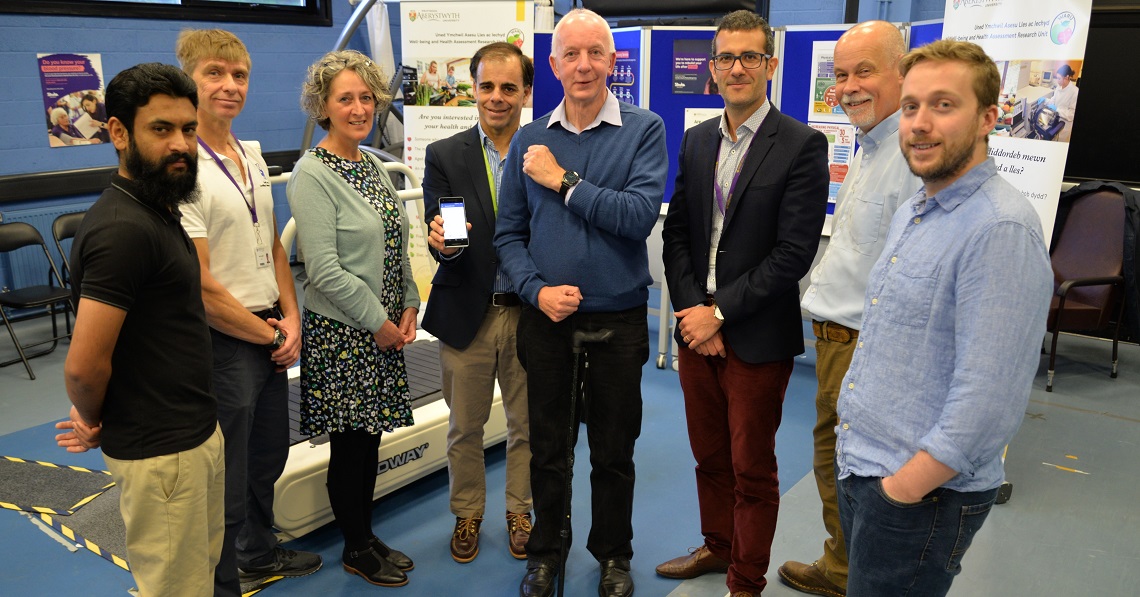Scientists harness technology to improve stroke patients' recovery

Stroke patient Dylan Williams (wearing watch) with members of the team who are working on the app designed to improve the quality of life of stroke patients.
29 October 2019
Scientists at Aberystwyth University have developed a mobile app to improve the quality of life of stroke patients.
In a new joint study funded by the NHS’s Welsh Stroke Implementation Group, the wearable technology will monitor and analyse the movements of a group of stroke patients during various activities.
Over the course of 12 weeks, the aim is to step up the rate of stroke recovery through an intensive, specifically tailored exercise programme using technology to assist complex movement patterns.
The interdisciplinary project is being led by Dr Federico Villagra a lecturer in Exercise and Health Physiology at the University’s Institute of Biological, Environmental and Rural Sciences (IBERS), and Dr Otar Akanyeti, a Sêr Cymru Research Fellow in the Department of Computer Science.
They are working in collaboration with two key staff from the Stroke Unit at Bronglais Hospital in Aberystwyth - Consultant Physician and clinical lead for stroke in Wales Dr Phil Jones, and Lead Research Nurse Sarah Jones.
Dr Phil Jones said: “Acute stroke care has come a long way over the last few years through research projects. It is important to recognise the life-long impact of stroke and to research approaches that may help to improve quality of life for those who have suffered a stroke. This exciting and innovative project may again advance stroke care. The increasing collaboration between Hywel Dda University Health Board and Aberystwyth University in such projects is also very welcome."
Dr Akanyeti said: “Sitting, standing or lying down are all activities we tend to take for granted but they require a series of body parts working in perfect synchronisation. A stroke affects the ability to move and can have a negative impact on a patient’s quality of life. Wearable devices combined with artificial intelligence will allow us to measure this impact in an objective and automatic way.”
Dr Villagra said: “About 7,400 people suffer a stroke in Wales every year, with a total of around 66,000 stroke sufferers at any given time. It is estimated that up to 70% of all strokes could be avoided if the risks factors were treated and people adopted healthier lifestyles. Our research brings together technology and exercise in a rehabilitation programme aimed at improving the quality of life for stroke patients. Our long-term aim is to establish a stroke rehabilitation centre within the University, working with colleagues from different disciplines as well as local healthcare professionals.”
David Langford, the research associate and exercise physiologist for the project, said: “The programme will enhance people’s knowledge about exercise rehabilitation after stroke and provide a great opportunity to improve their overall health and fitness.”
The study starts in October 2019 with all referrals through the stroke unit at Bronglais Hospital.
For further information, please contact Dr Federico Villagra fev1@aber.ac.uk or Dr Otar Akanyeti ota1@aber.ac.uk.



